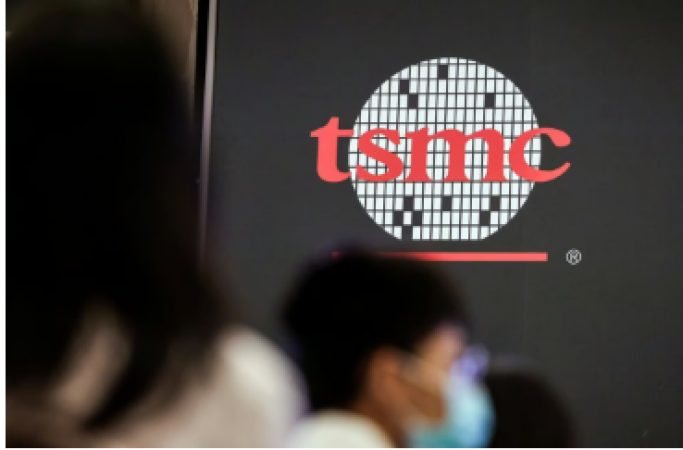
Beijing: In light of the weak demand for computing and smartphone chips, Taiwan Semiconductor Manufacturing Co. (TSMC), Apple's primary chip supplier, has revised its outlook for 2023 capital spending downward.
According to company chairman Mark Liu, who presided over the company's annual shareholders' meeting on Tuesday, TSMC's capital expenditure should end up closer to the lower end of a previously anticipated US$32 billion to US$36 billion range.
It confirmed predictions that revenue would fall by roughly 10% in US dollar terms in the first half of 2023.
Also Read: SpaceX will carry out NASA's 28th Commercial Resupply Services launch to the ISS
According to the more conservative projection, TSMC, like its competitors in the electronics sector, will likely continue to exercise caution in the face of a sharp decline in consumer spending and an uneven post-Covid-19 Chinese economic recovery.
The Taiwanese chip linchpin previously stated that after personal computer, server, and smartphone makers reduce inventories, semiconductor demand is likely to improve in the latter part of this year.
The extent of the global tech recession and whether China's economy will recover strongly after removing its zero-Covid-19 controls are two major questions that TSMC and its competitors must address.
Also Read: Apple Stock Sees Record High Ahead Mixed Reality Headset Launch
In line with expectations, the company reiterated on Tuesday that it anticipates a low- to mid-single-digit revenue decline in 2023.
Customers are reducing their inventories, and some end markets are showing signs of recovery while the company is going through an inventory adjustment period, according to Liu. "Our company is prepared to capture strong growth starting next year, even though we may see a slight decline in sales this year."
On Tuesday, Liu highlighted TSMC's longer-term prospects and expressed optimism for a broader sector recovery in 2024.
The most sophisticated chip manufacturer in the world, which is also Nvidia Corp.'s primary partner in the design of artificial intelligence (AI) chips, predicts that the proliferation of AI services on mobile devices will increase demand for the sophisticated chips that train and host those apps.
According to Liu, TSMC first plans to double the capacity of its advanced chip packaging.
Investors are placing their bets on TSMC becoming a global force in the creation of next-generation AI. Chips from top client Nvidia are necessary for ChatGPT, autonomous driving, and a new wave of AI products.
Thanks to Wall Street's obsession with generative AI, Nvidia's valuation briefly surpassed US$1 trillion last week, boosting the fortunes of TSMC and other electronics companies that provide the infrastructure required to train large AI models.
AI demand is very exciting, according to Liu. "Sales of high-performance computing will finally surpass those of smartphones in 2022. The development of generative AI will strengthen this trend.
Liu also took time to allay worries that rising Chinese aggression might harm its chances.
Despite warnings from the US that Beijing might decide to invade and attempt to retake an island it considers its own, the Taiwanese company continues to keep its most sophisticated manufacturing on home soil.
At the Shangri-La defence forum in Singapore, US and Chinese officials traded insults, highlighting widening differences over the fundamentals of the international system.
Over the past two years, TSMC has been expanding its manufacturing footprint to allay customer worries about geopolitical unrest in the Taiwan Strait. It is spending $40 billion to build two fabrication facilities in Arizona and receiving government funding to build a $8.6 billion facility in Japan.
Also Read: How many different fields is AI completely useless?
According to Liu on Tuesday, the business is still in talks with Tokyo about subsidies for a second facility that could be built next to its current plant in Kumamoto. According to him, the company is in talks with the Berlin government about building a manufacturing complex there, and some of its clients may end up owning a small portion of the property.
With its overseas diversification, "TSMC seeks to further secure customers' trust," Liu said.